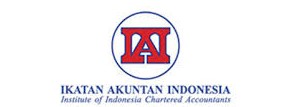Dukungan Organisasi Persepsian, Stres Kerja, dan Intensi Berpindah Tempat Kerja
Abstract
The high external auditor turnover phenomenon has triggered previous researchers to investigate it. The high level of auditor turnover causes inefficiencies for public accounting firms. This study examines whether there is a negative relationship between perceived organizational support and turnover intentions and analyses whether burnout mediates this relationship. This research obtained 57 samples analysed by using structural equation modelling (SEM), which was processed using Stata 14 software. This research documents that perceived organizational support is negatively correlated with turnover intentions. Furthermore, job stress was found to be able to mediate the association between perceived organizational support and turnover intention.
References
Annisa, R. (2018). Pengaruh Komitmen Organisasional dan Stres Kerja terhadap Turnover Intention melalui Kepuasan Kerja sebagai Variabel Intervening di RSUD Pandeglang Berkah. Skripsi. Program Studi Manajemen Universitas Islam Indonesia.
Bakarich, B. K. M., & Marcy, A. S. (2021). Pandemic Perceptions Accounting Firms’ Organizational Support during COVID-19. The CPA Journal, 91(2/3), 17-19.
Cannon, N. H., & Herda, D. N. (2016). Auditors’ Organizational Commitment, Burnout, and Turnover Intention: A Replication. Behavioral Research in Accounting, 28(2), 69–74. https://doi.org/10.2308/bria-51455
Chong, V. K., & Monroe, G. S. (2015). The Impact of the Antecedents and Consequences of Job Burnout on Junior Accountants ’ Turnover Intentions : A Structural Equation Modelling Approach. Accounting and Finance, 55, 105–132.
Cordes, C. L., & Dougherty, T. W. (1993). A Review and an Integration of Research on Job Burnout. Academy of Management Review, 18(4), 621–656. https://doi.org/10.5465/amr.1993.9402210153
Dawley, D., Houghton, J. D., & Bucklew, N. S. (2010). Perceived Organizational Support and Turnover Intention : The Mediating Effects of Personal Sacrifice and Job Fit. The Journal of Social Psychology, 150(4), 238–257. https://doi.org/10.1080/00224540903365463
Eder, P., & Eisenberger, R. (2008). Perceived Organizational Support: Reducing the Negative Influence of Coworker Withdrawal Behavior. Journal of Management, 34(1), 55–68. https://doi.org/10.1177/0149206307309259
Eisenberger, R., Armeli, S., Rexwinkel, B., Lynch, P. D., & Rhoades, L. (2001). Reciprocation of Perceived Organizational Support. Journal of Applied Psychology, 86(1), 42–51.
Eisenberger, R., Huntington, R., Hutchison, S., & Sowa, D. (1986). Perceived Organizational Support. In Journal of Applied Psychology, 71(3), 500–507. https://doi.org/10.1037/0021-9010.71.3.500
Guthrie, C. P., & Jones, A. (2012). Job Burnout In Public Accounting: Understanding Gender Differences. Journal of Managerial Issues, 24(4), 390–411.
Herda, D. N. (2012). Auditors’ Relationship with Their Accounting Firm and Its Effect on Burnout, Turnover Intention, and Post-Employment Citizenship. The Accounting Review,6(2), 13–18. https://doi.org/10.2308/ciia-50277
Herda, D. N., & Lavelle, J. J. (2012). The Auditor-Audit Firm Relationship and Its Effect on Burnout and Turnover Intention. Accounting Horizons, 26(4), 707–723. https://doi.org/10.2308/acch-50181
Herda, D. N., & Lavelle, J. J. (2021). How and why Auditors’ Social Exchange Relationships with Their Firm, Colleagues, and Clients Influence Their Attitudes And Behaviors: Implications For Audit Quality. Business Horizons. https://doi.org/10.1016/j.bushor.2021.02.044
Jackson, S. E., Schwab, R. L., & Schuler, R. S. (1986). Toward an Understanding of the Burnout Phenomenon. Journal of Applied Psychology, 71(4), 630–640. https://doi.org/10.1037/0021-9010.71.4.630
Kalidass, A., & Bahron, A. (2016). The Relationship between Perceived Supervisor Support , Perceived The Relationship between Perceived Supervisor Support , Perceived Organizational Support, Organizational Commitment and Employee Turnover Intention. International Journal of Business Administration, 6 (5)(August 2015), 82–89. https://doi.org/10.5430/ijba.v6n5p82
Kumar, M., Jauhari, H., Rastogi, A., & Sivakumar, S. (2018). Managerial Support for Development and Turnover Intention. Journal of Organizational Change Management, 31(1), 135–153. https://doi.org/10.1108/JOCM-06-2017-0232
Kurtessis, J. N., Eisenberger, R., Ford, M. T., Buffardi, L. C., Stewart, K. A., & Adis, C. S. (2015). Perceived Organizational Support: A Meta-Analytic Evaluation of Organizational Support Theory. Journal of Management, 43(6), 1854–1884. https://doi.org/10.1177/0149206315575554
Larson, L. L. (2011). Gender Differences in Internal Auditor Job Burnout. Internal Auditing, 26(1), 11–18.
Madden, L., Mathias, B. D., & Madden, T. M. (2015). In Good Company the Impact of Perceived Organizational Turnover Intentions. Management Research Review, 38 )(3), 242–263. https://doi.org/10.1108/MRR-09-2013-0228
Maslach, C., & Goldberg, J. (1998). Prevention of Burnout: New perspectives. Applied and Preventive Psychology, 7(1), 63–74. https://doi.org/10.1016/S0962-1849(98)80022-X
Nugroho, T. T., & Darmawati, A. (2018). Turnover Intention Pramuniaga PT Circle K Indonesia. Jurnal Ilmu Manajemen, 15(2), 101–108.
Rhoades, L., & Eisenberger, R. (2002). Perceived organizational support: A Review of the Literature. Journal of Applied Psychology, 87(4), 698–714. https://doi.org/10.1037/0021-9010.87.4.698
Shanock, L. R., & Eisenberger, R. (2006). When Supervisors Feel Supported: Relationships with Subordinates’ Perceived Supervisor Support, Perceived Organizational Support, and Performance. Journal of Applied Psychology, 91(3), 689–695. https://doi.org/10.1037/0021-9010.91.3.689
Smith, K. J., Emerson, D. J., Boster, C. R., & Everly, G. S. (2020). Resilience as a Coping Strategy for Reducing Auditor Turnover Intentions. Accounting Research Journal, 33(3), 483–498. https://doi.org/10.1108/ARJ-09-2019-0177
Sweeney, J. T., & Summers, S. L. (2002). The Effect of the Busy Season Workload on Public Accountants’ Job Burnout. Behavioral Research in Accounting, 14(1), 223–245. https://doi.org/10.2308/bria.2002.14.1.223
Utami, I., & Nahartyo, E. (2013). The Effect of Type a Personality on Auditor Burnout: Evidence from Indonesia. Accounting and Taxation, 5(2), 89–103.
Wang, Q., & Wang, C. (2020). Reducing turnover Intention : Perceived Organizational Support for Frontline Employees. Frontiers of Business Research in China, 14(6), 1–16.







.png)
.png)
